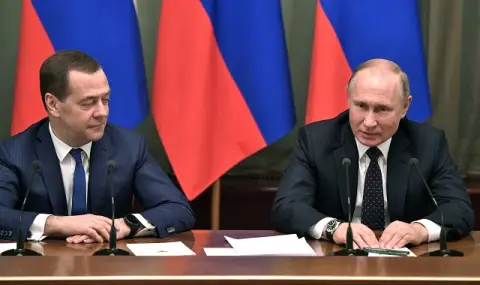A few days ago, Russian President Vladimir Putin made a proposal for peace talks, points out the Austrian Der Standard. Probably for him this is the strategically appropriate moment.
Austrian journalists recall how in his speech during the Eastern Economic Forum in Vladivostok, President Vladimir Putin noted:
"If there is a desire to negotiate, we will not refuse". Shortly before that, Putin's spokesman Dmitry Peskov announced the opposite. Peace talks with Ukraine are not appropriate at the moment. Agency "RIA Novosti" quotes Peskov as saying that there are no conditions for peace talks, as the invasion of Ukrainian units into the western Russian Kursk region makes them impossible.
Putin, however, has a different opinion: "Our armed forces have stabilized the situation," he announced regarding Kursk and added that he is fully ready for peace talks.
"We have never rejected them, but we have held that they are not based on a few short-term requests, but on the basis of documents - such were agreed upon and signed in Istanbul,", Putin announced in Vladivostok.
What documents are these?
Shortly after the war began, Russian and Ukrainian negotiating teams held talks about a possible path to peace in Istanbul. Germany's Welt am Sonntag published the 17-page document. It is the result of negotiations held on March 29, 2022.
By virtue of the agreement, according to these documents, Kiev agrees to "permanent neutrality". The country will remain non-aligned and refrain from developing nuclear weapons. For this there must be international security guarantees. Possible guarantor countries are Russia, Great Britain, China, USA, France, Turkey, Germany, Canada, Italy, Poland and Israel.
The conflict over the annexed Crimean peninsula will be "frozen" for a period of 15 years and resolved in direct negotiations between Russia and Ukraine. The status of the occupied territories in eastern Ukraine should be clarified at a summit between Putin and Ukrainian President Volodymyr Zelensky.
But to what extent have the parties agreed on a peace treaty?
Russian chief negotiator Vladimir Medinsky estimated the success achieved at 75 percent.
The advisor to the Ukrainian president Mykhailo Podoliak commented that there was no agreement and they did not reach an agreement on the individual points that would bring them closer to such a document. He also emphasized that there is no signed document.
Now Putin wants to continue negotiations. According to Der Standard, he feels he is on the way to success in the war. The Russian army continues to advance in eastern Ukraine. At the same time, the Ukrainian offensive in the Russian border zone is currently at a standstill.
The fact that Putin has both foreign and domestic political reasons for wanting to negotiate should not be overlooked. The most important is the upcoming election in the United States. It is not clear whether the new president will want to support Ukraine as before.
Another factor is the situation in Germany. The fact is that so far the Kremlin has not commented on the elections in the strongest economy in the EU, but the strengthened positions of the "Alternative for Germany" and BSW - "Sarah Wagenknecht Alliance" in Thuringia and Saxony. It can be seen that the position they defend regarding the war in Ukraine is "diplomacy instead of weapons".
Not least, Putin's willingness to negotiate is likely a reaction to the growing war weariness felt by many Russians.
"For the first time in six months, the number of people supporting the option - peace negotiations has increased significantly,", according to the independent Russian public opinion research institute "Levada".
In a recent survey, 58 percent of respondents want negotiations. At the same time, 37 percent believe that it is necessary to continue military actions.
Overall, 76% of all respondents still support the actions of the Russian armed forces in Ukraine. There are also some 17% who are against them. At the same time, skepticism is growing among younger Russians about how successful the end of the war in Ukraine will be. Among younger people - those under the age of 24, 59% are "For" the war. At the same time, 33% of all age groups in Russia express concern, fear and horror about the war, the survey found.
And the local and regional elections in Russia, which ended a while ago, are also affected by the war of aggression.
Vladimir Putin is aware of the growing exhaustion in Ukraine - no doubt there they fear the next winter without enough heating.
The dramatic changes in the Ukrainian government, especially the replacement of Foreign Minister Dmytro Kuleba, are also worrying.
It is no surprise to anyone that Putin wants to negotiate, but on his own terms. In Vladivostok, he has already indicated the possible mediators: China, Brazil and India.
Der Standard recalls that Austrian Chancellor Karl Neuhammer also announced that his country, which houses the headquarters of the Organization for Security and Cooperation in Europe (OSCE), is also an option to be a mediator and it is ready to support a just and lasting peace based on international law.
